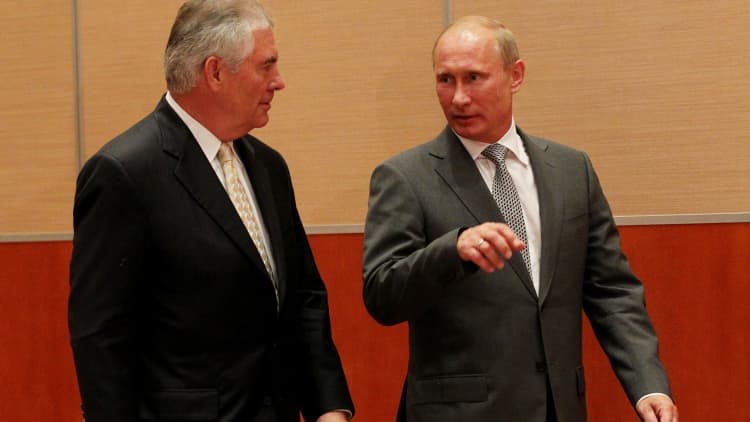Exxon Mobil stressed on Friday that it is abiding by sanctions on Russia's energy industry, one week after the U.S. Treasury Department blocked its bid to resume operations in banned parts of the country.
"As everybody clearly knows the sanctions remain in place. I want to be very clear. We remain in full compliance of those sanctions and therefore not a whole lot is being done there, other than our assets on the east coast, which are not included in the sanctions," Jeff Woodbury, vice president of investor relations, said in a conference call.
The oil major suffered a setback last week when the Trump administration denied its request for a waiver to carry out operations in Russia, which faces sanctions over its 2014 annexation of Crimea and its role in Ukraine's civil conflict.
Exxon entered a joint venture with Russian energy giant Rosneft in 2012 to develop offshore reserves in the Arctic Kara Sea and the Black Sea, as well as onshore assets in Siberia. The following year, they advanced their strategic alliance by adding seven more blocks in the Chukchi, Laptev and Kara seas.
The deals were negotiated under the watch of former Exxon CEO Rex Tillerson, who is now U.S. Secretary of State.

Exxon has said its "maximum before-tax exposure to loss" from the joint venture totaled $1 billion through the end of 2015. Exxon sought the waiver to drill in some of those areas in order to meet terms of its contract that require it to meet certain milestones, The Wall Street Journal reported last week.
"Our 2015 application for a license under the provisions outlined in the U.S. sanctions was made to enable our company to meet its contractual obligations under a joint venture agreement in Russia, where competitor companies are authorized to undertake such work under European sanctions," Exxon said in a statement following Treasury's announcement.
Exxon's holdings in Russia's Arctic waters and the Black Sea total 63.6 million acres. By comparison, it holds 85,000 net acres across an offshore project on Russia's east coast called Sakhalin, which was in in motion before the sanctions.
Woodbury said Sakhalin is performing "extremely well" and the company expects to start the next phase of the project later this year.


